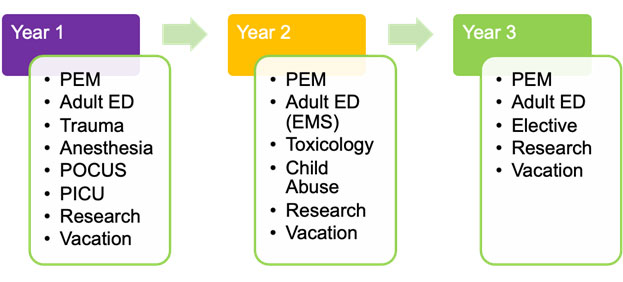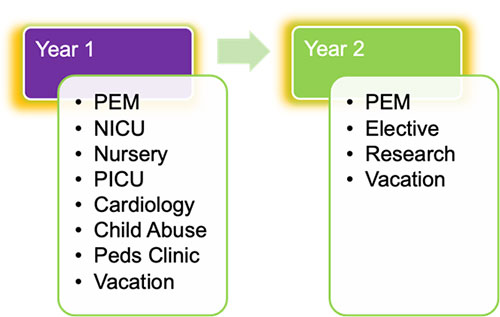Our fellowship offers 2 tracks: Pediatric (3 years) and Emergency Medicine (2 years) Each year contains 12 monthly blocks.
Conference/Mentorship
All fellows participate in the weekly conference. Conference covers core PEM content, simulation, POCUS, Procedural skills, Board Review, EBM, Article review, Case review, M&M, Specialist rounds, research meetings, journal watch, QI/patient safety, Adult EM topics, Wellness, as well as joint conferences with PEM programs in the region.
- The fifth week of the month is dedicated to fellow wellness.
- First year fellows participate in the National PEM Fellow Conference.
- Opportunities to attend major national scientific conferences are available to fellows as well.
Mentors/Advisors
We match each fellow with a faculty mentor and a scholarly oversight committee to help ensure that they achieve their full clinical and scholarly potential during their time in our program.
Fellows are given the opportunity to select the faculty members they would like to mentor them.
Clinical Rotations
Each fellowship year is divided into 12 monthly blocks. There are four weeks of vacation time per year.




